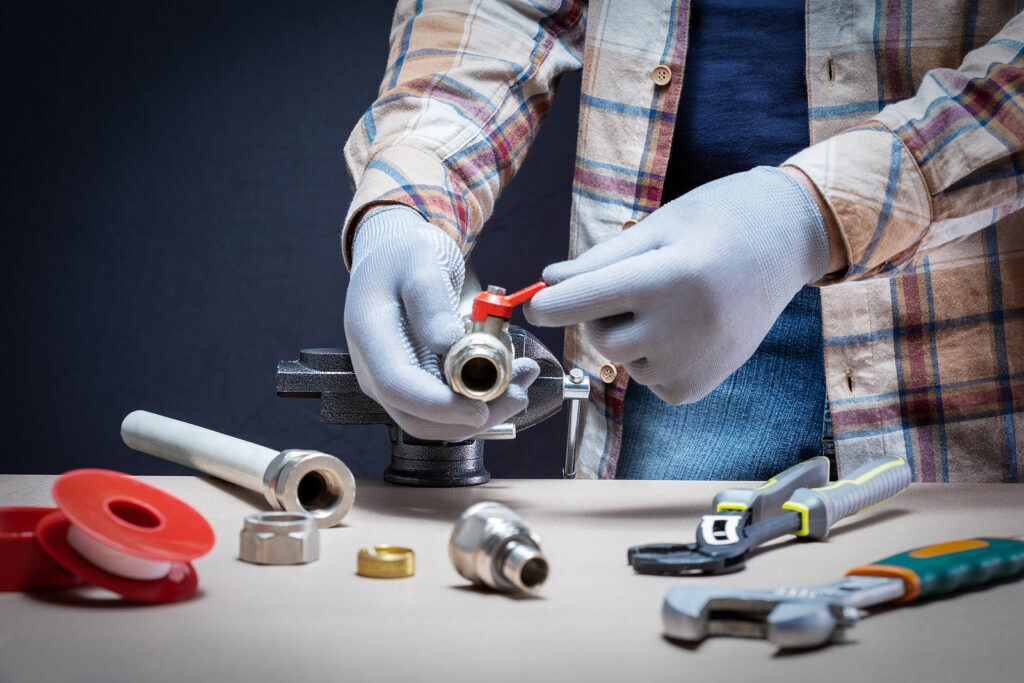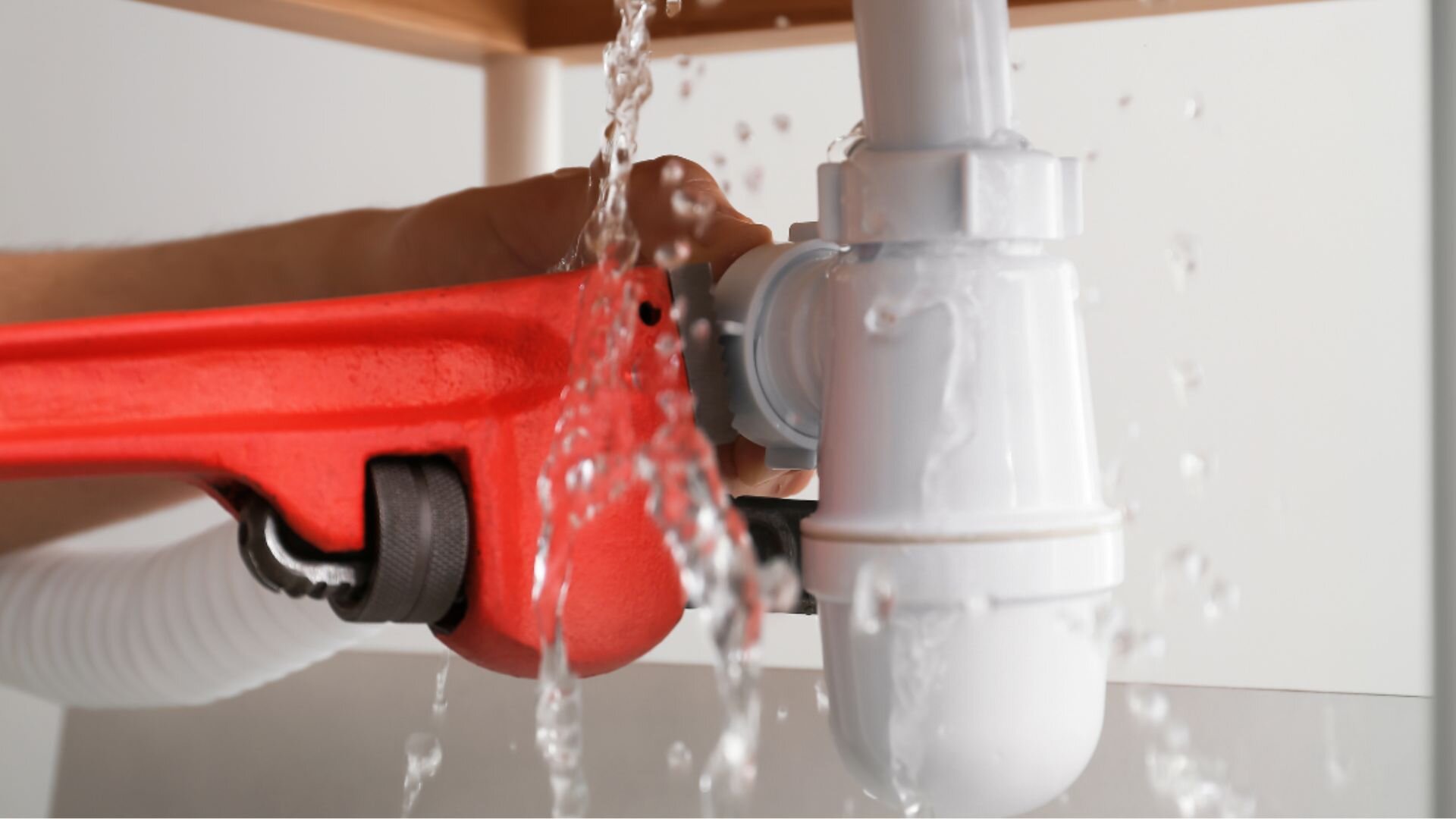Just about every person seems to have their own unique idea on the subject of Expert Tips for Emergency Plumbing Repairs.

Pipes emergency situations can strike at any time, causing tension and prospective damage to your home. Whether it's a burst pipe, a blocked drain, or a leaky faucet, recognizing just how to take care of the scenario until a professional plumbing arrives can save you from more difficulties. This post supplies necessary emergency situation plumbing pointers to aid you mitigate damage and restore control during a pipes situation.
Switch off the Water
The primary step in any plumbing emergency situation is to shut down the water system. For localized issues, such as a leaking tap or toilet, switch off the shutoff near the fixture. In the case of a significant leak or ruptured pipeline, find your home's main water shut-off shutoff and turn it off instantly. Recognizing the place of these valves beforehand can conserve important time during an emergency situation.
Turn off Your Water Heater
In particular emergencies, such as a ruptured pipe, it's important to shut off your hot water heater. This avoids getting too hot or damage to the system when water stops streaming. Turn off the power supply to the water heater (electrical or gas) and let it cool to avoid prospective hazards.
Temporarily Quit a Burst Pipe
A ruptured pipe can lead to considerable water damages in minutes. To reduce the problem:
Call a specialist plumbing professional immediately to deal with the issue permanently.
Have an Emergency Plumbing Set
Prepare a basic pipes emergency situation package to handle small concerns effectively. Your kit should include:
Having these tools on hand can make a significant distinction in your capacity to take care of emergency situations.
Unclog Drains Pipes Securely.
A stopped up drainpipe can be a discouraging and messy issue. Below's just how to tackle it:.
If these techniques do not function, avoid making use of extreme pressure, as it may worsen the obstruction.
Take Care Of Overflowing Toilets.
An overflowing bathroom can create instant disorder. Right here's what you should do:.
Address Tiny Leaks with Short-lived Fixes.
Little leakages can quickly end up being significant issues if left uncontrolled. Make use of these temporary repairs up until expert aid gets here:.
While these repairs aren't long-term, they can aid decrease water loss and damages.
Take Care Of Frozen Pipes Carefully.
In colder climates, frozen pipes are a common emergency. If you think a frozen pipe:.
Know When to Call a Professional.
While quick fixes can aid momentarily, particular pipes problems require prompt specialist focus. Call a plumbing technician if:.
Promptly speaking to an expert ensures the concern is dealt with correctly and protects against further complications.
Protect against Further Damages.
Taking fast action to decrease damages can conserve you money and time in the long run. Right here's just how:.
Verdict.
Plumbing emergency situations can be frustrating, but with the ideal knowledge and devices, you can handle the situation successfully until help gets here. By turning off the water system, resolving small leakages, and making use of temporary repairs, you can lessen damage and maintain your home safe. Bear in mind, these ideas are temporary services; constantly speak with a qualified plumbing to manage the origin of the problem. Prep work and fast thinking are your best allies in any pipes emergency situation.
8 Helpful Tips for Managing Plumbing Emergencies at Home
If your plumbing system hasn’t failed once, wait for it because almost everyone has a story to tell. Sometimes, it could be simple emergencies such as a leaking pipe, a blocked cistern, or even a big burst pipe. In situations like this, you need to have some handy tips to save you some money and from possible damages.
Take care of minor issues early.
Sometimes, you could have avoided an emergency by taking proactive measures while it was still early. Some major plumbing emergencies can be a result of an ignored minor issue. We recommend that you have items like plumbing tapes and other related items. A plumbing tape can allow you to manage minor leaks before the plumber arrives.
Cut off the water supply.
This tip is essential in almost any type of leakage problem. For problems like minor leakages in the toilet or kitchen, turn off the supply that takes water to the affected pipes. If the leakage is a major pipe, you must shut off the supply valve to the entire building. This will help you avoid flooding your home and neighbors if you share a flat.
Know your plumbing system
Folks typically move into a new apartment without understanding the water supply around the building. This can prove disastrous if a water emergency arises and the plumber is far away. The previous tip will prove useless if you don’t practice this one. More importantly, know where your water shut-off valve is located – you’ll need that knowledge to prevent potential home floods.
Have some common handy tools
There are lots of plumbing emergencies that you can handle without hiring a plumber. That’s why you must keep some tools available always. Some tools that you can use to fix simple plumbing emergencies easily include plumbing tapes, screwdrivers, thread seal tapes, plungers, pliers, tape measures, and rubber gloves.
Insulate your pipes from cold
You’ll save yourself from many plumbing expenses if you protect your water pipes from the cold. This is because of the harmful effects that cold weather can have on your pipes. During winter, your pipes can burst from being overly expected to freezing temperatures. So, make sure insulators are there to keep the pipes working correctly.
Avoid practices that will clog your toilet.
Many people indulge in practices that can damage the plumbing system of the entire building. One of these is when they use their toilet to dispose-off garbage. They flush all kinds of things, such as paper towels, bandages, hairs, female sanitary products, etc., down the toilet. This will block your toilet in the long run, incurring unnecessary expenditures. Dump such waste in the trash instead.
Check your dials regularly.
Sometimes, there could be leakages in your home without noticing them in time. So, constantly monitor your water meter dial. If the dial is reading when there is nobody using water, this is an indicator that there is leaking. Check for leaks immediately. Call a plumber as soon as possible if you can’t find any.
https://www.constructionplacements.com/8-helpful-tips-for-managing-plumbing-emergencies-at-home/

Do you appreciate more info about Expert Tips for Emergency Plumbing Repairs? Try leaving a remark below. We'd be delighted to hear your opinions about this blog. In hopes to see you back again in the future. Are you aware of anybody else who is curious about What to Do During a Plumbing Emergency? Be sure promote it. We treasure reading our article about Expert Tips for Managing a Plumbing Emergency Until Help Arrives.
Call